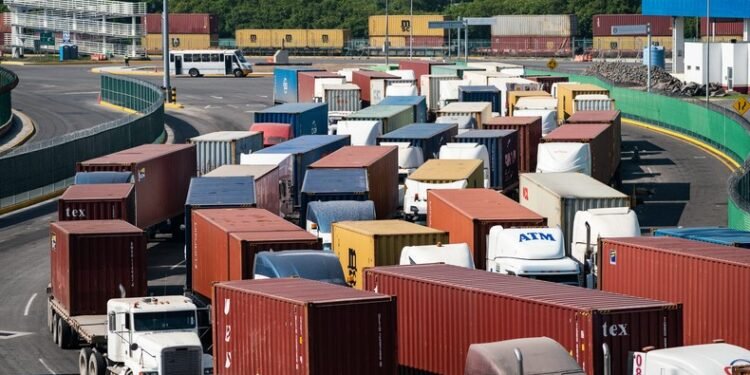Kenya’s tea industry, which generates approximately $25 million (Sh3.2 billion) in weekly revenue by exporting around 150 tea containers daily, has been severely impacted by the KRA system shutdown.
The five-day downtime has resulted in a backlog of 750 tea containers at the port, causing exporters significant financial distress due to escalating demurrage and logistics costs.
The EastAfrican reports that the service disruptions which affected the KRA’s integrated Customs Management System (iCMS), has led to delays along the entire chain from the point of entry, to the delivery of goods to the client with tea traders and other stakeholders across various sectors incurring significant losses.
The Mombasa port is the biggest port in East Africa and the only international port in the Kenya. The port is a transit route for mainly, Uganda, Rwanda, South Sudan and Northern Tanzania.
The KRA’s request for traders to suspend all document lodging on the system until further notice has created additional uncertainty, as there is no defined timeline for when the issue will be resolved.
Commenting on the development, the East African Tea Trade Association (EATTA) chairman Arthur Sewe, and Managing Director George Omuga alerted stakeholders that Mombasa risked losing the import and export market share of the region if the delays continued.
“There is a need to have an alternative cargo clearance system apart from iCMS as a fallback plan as there is an information exchange problem between PGAs. We also request the government to facilitate billing be done on a monthly basis,” Mr Omuga added
History seems to be repeating itself as the recent system downtime mirrors a similar incident in February 2024, when a technical issue brought cargo clearing to a standstill at major Kenyan entry points.
The Star Kenya reports that the previous incident saw the iCMS offline for three days, imposing extra costs and potential losses on traders and importers, who are now facing a similar predicament once again.
Various crucial points were mostly affected including Kenyatta International Airport (JKIA), the Port of Mombasa, Inland Container Depots and Container Freight Stations (CFSs).
The KRA’s Customs and Border Control Department first introduced the $8.45 million (Sh1.2 billion) iCMS in 2019, aiming to replace the outdated Simba system. The introduction of iCMS was intended to enhance efficiency, streamline trade processes, and prevent tax evasion by sealing loopholes exploited by tax cheats.









